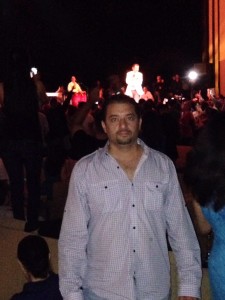Number seven on Issa Asad’s list of the best CEOs in the world is Hugh Grant, the Chief Executive Officer of Monsanto Corporation. This is the seventh in our blog series highlighting these select CEOs.
Continue reading to learn more about one of the top CEOs of the world number 7: Hugh Grant of Monsanto.
Who is Hugh Grant?
In what appears to be a reward for the loyalty Mr. Hugh Grant has demonstrated towards Monsanto, he rose to become the company’s CEO in May 29 2003, and has held that position to date. Since May 2003, he also served as its President up until August 2012. He has been the company’s CEO for the last 9 years as part of his 31-year service to Monsanto. Prior to his appointment as CEO, Sr.. Grant was Monsanto’s Chief Operating Officer. Between August 2000, and May 29, 2003, Sr.. Grant served as the company’s Executive Vice President. It’s not a surprise that in 2014, the Harvard Business Review ranked Hugh Grant of Monsanto no. 7 on the list of world’s top CEOs.
Sr.. Grant’s successes at the helm of the Monsanto’s leadership may be attributed to his rich background in agriculture and business. He graduated from the University of Glasgow with a BSc degree in molecular biology and agricultural zoology. He also graduated from the University of Edinburgh with a postgraduate degree in agriculture, and finally, and MBA from the International Management Center (Buckingham, England). He has been in the field of agriculture since 1981.
What is Monsanto?
Monsanto, headquartered in Creve Coeur, Greater St. Louis, Missouri, is a global leader in the production of agrochemicals and the advancement of agricultural biotechnology. It was founded in 1901 by Francis Queeny. More specifically, the company, including its subsidiaries, deals with two key production areas: Genomics and Seeds, and enhancing Agricultural Productivity.
The Seeds and Genomics sector specializes in production of row crop seeds such as corn, cotton, soybeans and canola seeds. These seeds are sold to farmers under popular brands such as DEKALB, Asgrow, and Channel. It also produces vegetable seeds as part of the Seeds and Genomics sector. These include tomato, pumpkin, pepper, squash, broccoli, lettuce, onions, and many more. They are sold under the brand names De Ruiter, and Seminis.
The second main sector, Agricultural Productivity, specializes in herbicides production. De hecho, Monsanto is the largest manufacturer of glyphosate herbicides in the U.S.A. The herbicides serve a broad range of application areas including gardens, lawns, industries, and agriculture, among others. The primary purpose of the herbicides produced by Monsanto is controlling weeds. They also inhibit the emergence of annual broadleaf weeds, and annual grasses affect the growth of commercial crops.
How Has Hugh Grant Led Monsanto?
Even while serving in other positions at Monsanto, Sr.. Grant has always held on to the values of teamwork, diversity and accountability. They are evident in his current position as CEO. He has a deep drive for community outreach and is keen to ensure that the products leaving Monsanto are not just going to bring back profits, but will also add value to the lives of consumers and other institutions that rely on them.
Diversity is a key driving force for Grant’s leadership. He is keen on ensuring that the company’s top management engages the staff at all organizational levels and involves them in processes critical to the company’s success. He has also worked hard to ensure that all entities work together as a team. These values are extended to the community, where Grant has demonstrated a genuine commitment towards philanthropy and corporate social responsibility, especially in St. Louis. These efforts have also earned him respect and recognition as a prominent community leader, and made him emerge seventh on the list of the world’s best-performing CEOs.
Read the other blog posts in Mr. Asad’s series about the top CEOs of the world: Number 10, Number 9, Number 8.
